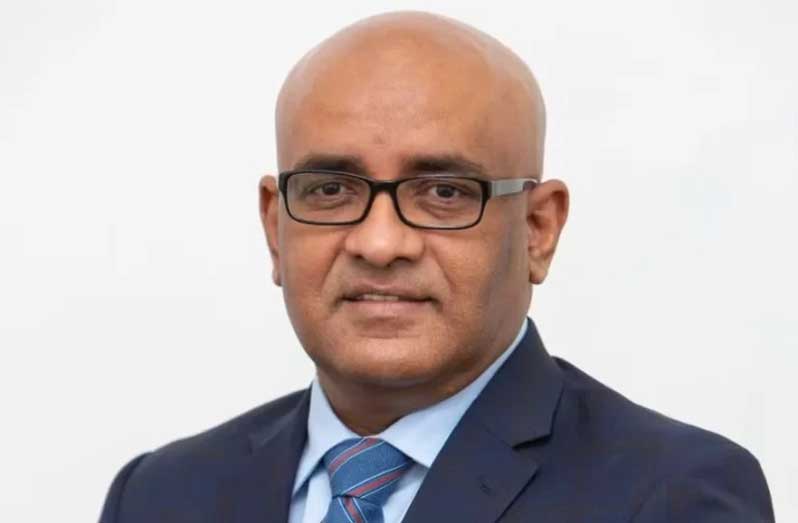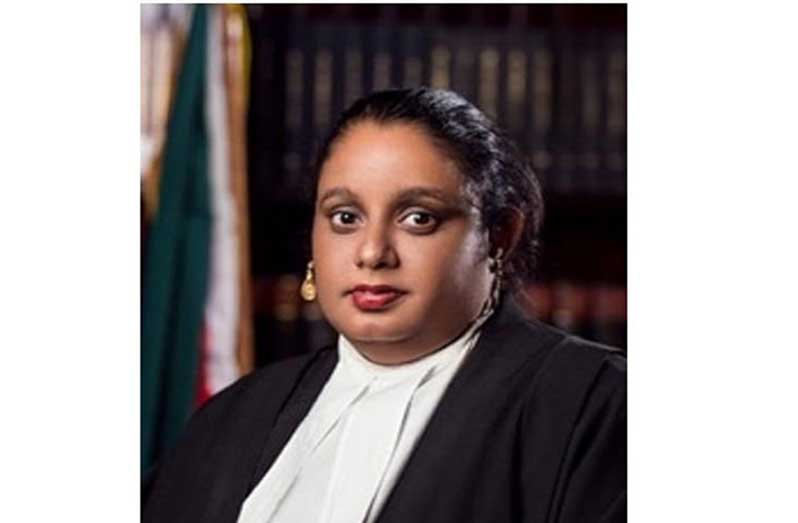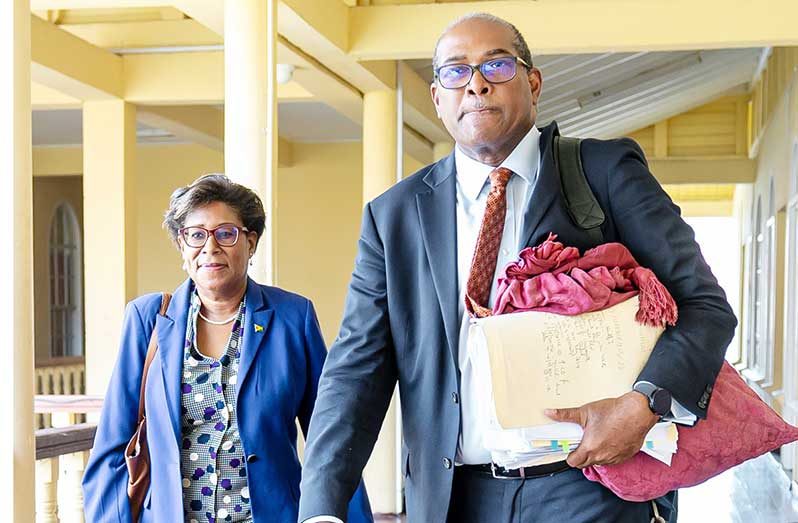-court asked to consider her ministerial actions, election controversy, APNU+AFC’s stance after no-confidence motion
IN the ongoing defamation trial between Alliance for Change (AFC) executive member, Catherine “Cathy” Hughes and Vice-President Dr. Bharrat Jagdeo, presiding judge Priscilla Chandra-Hanif emphasised that the claimant’s public image and character will be thoroughly examined.
On Thursday, the judge outlined a structured two-stage approach to evaluating the evidence, including a detailed “forensic audit” of Hughes’ reputation as a public political figure.

In her statement of claim, she is seeking over $50 million in damages from Dr. Jagdeo for remarks he made during a press conference on November 23, 2023, where he referred to her as a “lowlife.” Dr. Jagdeo, who serves as General Secretary of the People’s Progressive Party (PPP), typically holds press conferences every Thursday to address various issues.
Hughes has admitted that Dr. Jagdeo’s “lowlife” description of her was related to two issues: her accusation that he had granted a “channel” in the Atlantic Ocean to Venezuela to resolve the border controversy and allegations that her company, Videomega, had received millions of dollars in contracts while she served as a minister in the A Partnership for National Unity + Alliance for Change (APNU+AFC) from 2015-2020.
The trial continued on Thursday at the Demerara High Court, with Jagdeo beginning his defence by presenting evidence from witness Robin Singh.
Before Singh’s testimony, however, the judge addressed several procedural matters, including objections raised by Hughes’s attorney, her husband, Nigel Hughes, to portions of Singh’s affidavit and outlined her approach to assessing the evidence.
The judge explained that she will first examine whether the term “low life,” allegedly used by Jagdeo to describe Mrs Hughes, qualifies as defamatory in the context.
This analysis involves determining if the phrase, in its ordinary meaning or in the context it was used, could harm Mrs Hughes’ reputation by subjecting her to ridicule or contempt or diminishing her standing in the eyes of reasonable members of society. If the court finds that it was indeed defamatory, Justice Chandra-Hanif questioned how it would quantify the damages associated.
At this stage, she said the court will conduct a public forensic audit of the reputation of Mrs Hughes, who she described as “public political figure”.
In assessing damage to the claimant’s reputation, she said the court will determine what was the standard society held her at when the words were spoken, and in that determination, the court will assess the veracity and accuracy of her reputation and the statements.
NOT AN ORDINARY DEFAMATION CASE
According to the judge, this is not an ordinary defamation case, noting that it carries its own legal facts which the court must assess. The judge noted that, unfortunately for the claimant, the matter carries political implications and necessitates an understanding of her public image.
The judge clarified that Singh is permitted to present his opinion in court, including his opinion about the claimant. However, she clarified that such statements are considered observations or personal opinions and do not constitute factual evidence. The court will independently determine what qualifies as proven facts in the case, according to Justice Chandra-Hanif.

She explained that Singh is free to tell the court, for example, that things said by the claimant were false. She added the court still has to assess Singh’s credibility and weigh it against the claimant’s credibility.
The judge emphasised that “the court alone” determines credibility and truth based on evidence.
The judge stated that all matters in the public domain could legitimately be considered when assessing the character of a public political figure.
According to Justice Chandra-Hanif, the claimant, considering who is her attorney, should have been aware that entering the trial would involve a thorough examination of her character to determine whether defamation occurred and, if so, the extent of the damage caused.
The judge explained that the risk is understood, stating that once someone enters the trial, they cannot expect certain matters to be excluded from consideration.
NO CONFIDENCE MOTION
In assessing Mrs. Hughes’ reputation, Jagdeo’s attorney, Sanjeev Datadin, has asked the court to consider the APNU+AFC government’s refusal to step down after a successful no-confidence motion was passed against it in 2018, maintaining that 33 was not the majority of the 65-member National Assembly.
As one of those government’s minister, Datadin said Mrs Hughes supported this position. He argued that her actions aligned with the collective stance of the then government.
MINISTERIAL ACTIONS, FALSE ACCUSATIONS
During cross-examination, Mrs Hughes admitted to approving millions of dollars in contracts for her company, Videomega, while serving as minister, though she avoided stating whether it was inappropriate for a minister to award contracts to their own company.
She acknowledged that Dr. Jagdeo’s assertions about the contracts were partially true, but explained that she did not pursue legal action against him because she knew he had supporting documentation.
Mrs Hughes also conceded that her accusation about Jagdeo granting a “channel” to Venezuela to resolve the border controversy was false, and clarified that Jagdeo had no role in the 1989 border issue, which was initially raised under the Burnham presidency.
2020 ELECTION CONTROVERSY
The court is also being asked to consider Mrs Hughes’ response regarding her party’s Statements of Poll (SoPs) from the 2020 elections.

When questioned by Datadin, she clarified that while she saw Statements of Recount (SoR), she had not seen all the SoPs and could not definitively say if her party had won the elections.
Mrs Hughes stated that she relied on GECOM’s official statements, expressing distrust in some SoPs due to past manipulations.
She acknowledged being aware of the controversy surrounding the elections and the PPP’s claim of victory based on their published SoPs.
She explained that the “controversy” referred to concerns about the integrity of the election process and the subsequent recount, which led to a protracted legal process before the PPP was declared the winner. Datadin referred to APNU+AFC minister Dominic Gaskin’s decision to distance himself from the APNU+AFC attempts to stall the declaration of the election results, which resulted in a victory for the PPP.
Datadin then contrasted this with Mrs. Hughes’ choice not to distance herself, indicating that while she had the option to take similar actions, she chose not to.
Once again, he argued that her actions were in line with the collective stance of the government at the time. The court is also being asked by the vice president to consider Hughes’ response when questioned by Datadin about being called a “lowlife” by anyone else.
When questioned about a Facebook post shared by her husband, featuring a photograph of her and others with the caption, “When I grow up, I want to be a lowlife or marry one,” Mrs Hughes acknowledged that it was likely referring to her but suggested that Datadin direct the question to her husband for clarification.
The trial is scheduled to resume on December 19, 2024, with Singh continuing his testimony.




.jpg)









